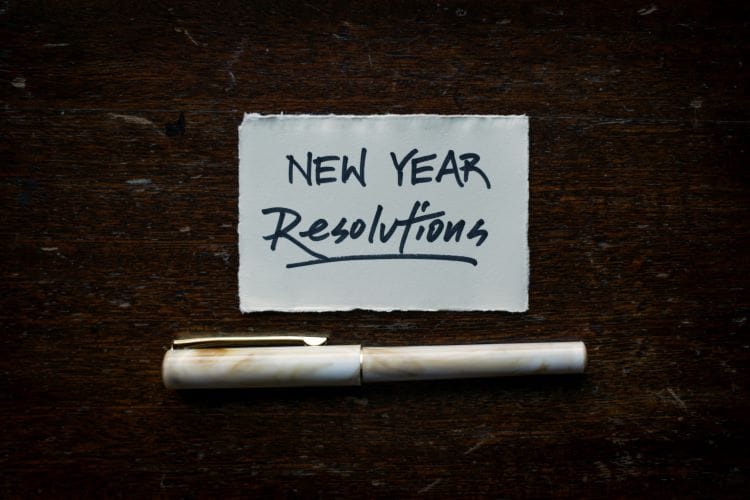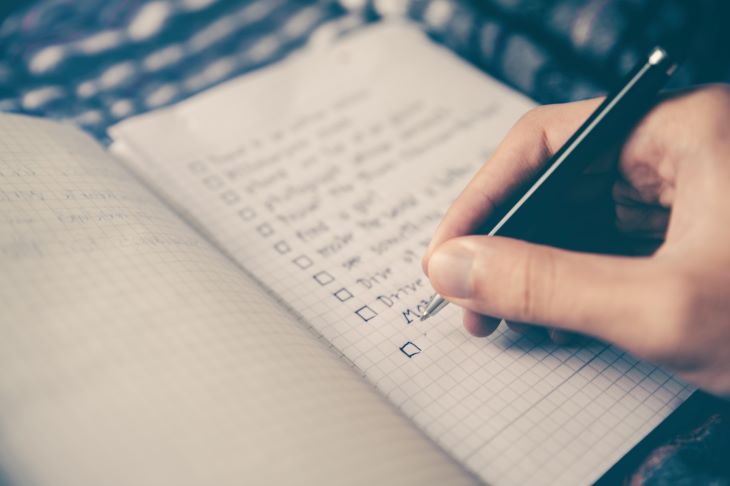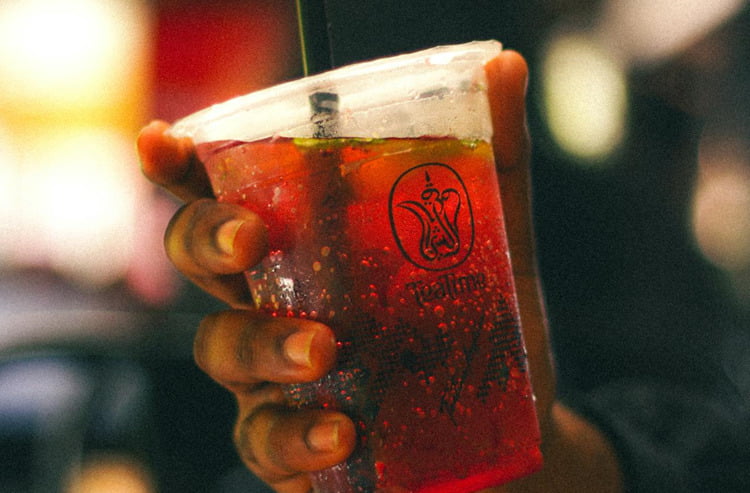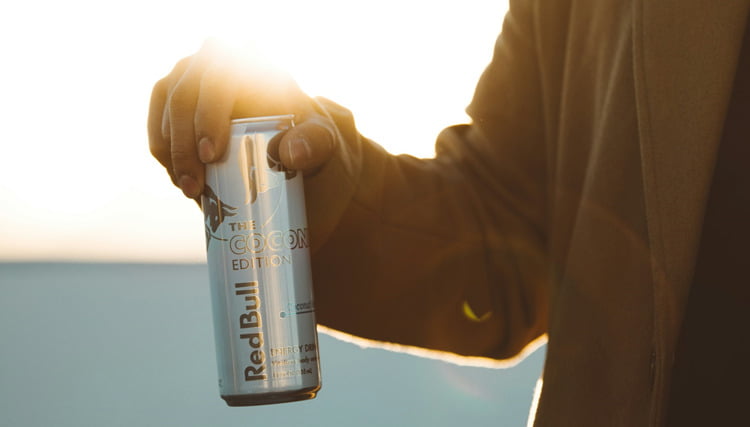31 Tips for Stopping Drinking in 2025
Sobriety is gaining popularity as people embrace its health, financial, and emotional benefits. In 2025, it’s about living a healthier, more fulfilling life.
Discover tips to quit drinking, stay motivated, and enjoy the freedom sobriety brings.
What Is Dry January?

Dry January is a month-long challenge where people give up alcohol for the entire month of January.
It’s a chance to reset after the festive season and start the year with healthier habits. The idea is simple: no booze for 31 days.
It’s not just about avoiding alcohol; it’s also an opportunity to reflect on your relationship with drinking.
Where Did Dry January Begin?
Dry January started in 2013 in the UK, led by the charity Alcohol Change UK.[1]
The campaign was designed to raise awareness about the effects of alcohol and encourage healthier habits.
Since then, it has grown into a global movement, with millions of people taking part each year.
Strategies for a Fruitful ‘Dry January’ Experience

Taking on Dry January can feel like a big challenge, but with the right strategies, you can make it a success. Here are some tips to keep you on track and motivated throughout the month.
- Set Clear Goals: Decide your purpose for Dry January, write it down, and focus on completing the month rather than striving for perfection
- Seek Support: Share your plans with friends, family, or online groups to stay accountable and gain encouragement
- Identify Triggers: Recognise situations that prompt drinking and plan alternatives like non-alcoholic drinks or avoiding tempting environments
- Try New Activities: Replace drinking with hobbies, exercise, or quality time outdoors to make your experience positive and fulfilling
Is Completing ‘Dry January’ Challenging?

Dry January can feel tough at times, especially if drinking has been part of your routine. But with the right mindset and strategies, you can push through the challenges and come out stronger.
- Common Obstacles: Challenges like social pressure, breaking habits, cravings, and self-doubt can arise. Recognising these hurdles helps you prepare to overcome them
- Tips to Stay Motivated: Keep your reasons in mind, plan for social situations, celebrate small wins, and focus on positive changes like better sleep and more energy. Progress, not perfection, is key
Top Non-Alcoholic Beverages to Enjoy

You don’t have to feel left out when giving up alcohol.
There are plenty of delicious non-alcoholic drinks that can make Dry January – or any time – enjoyable. Here are some great options to try.
Popular Non-Alcoholic Drinks
Non-alcoholic beverages have come a long way. You’ll find a wide variety of choices to suit any taste:
- Non-alcoholic beers: These taste just like the real thing but without the alcohol
- Alcohol-free wines: Perfect for dinners or celebrations, these are made to mimic the flavour of traditional wines
- Mocktails: Creative, alcohol-free versions of classic cocktails, like mojitos or piña coladas
- Sparkling water: Add a slice of fruit for flavour and enjoy a refreshing, low-calorie option
- Herbal teas: Great for relaxing in the evening or warming up on a cold day
Establishing a Clear Objective for ‘Dry January’

Setting a clear goal is one of the most important steps to success during Dry January. Knowing why you’re doing it and what you hope to achieve can keep you motivated and focused.
Why Goal-Setting Matters
When you have a clear objective, it’s easier to stick to your plan. Without a goal, you might find yourself tempted to give up halfway through.
A specific goal gives you something to aim for and reminds you why you started. Whether it’s for better health, saving money, or just proving to yourself that you can do it, your reason matters.
- Define Your Objective: Be honest about your reasons for doing Dry January, write down your goal, and focus on achievable milestones like completing each week
- Commit to Your Goal: Share your plan with someone you trust for support and accountability. Stay focused, take it one day at a time, and remind yourself of the benefits
Methods to Achieve Sobriety

Finding the right way to stop drinking is a personal journey.
What works for one person might not work for another. Here are some methods to consider, so you can find the approach that’s best for you.
- Choose Your Approach: Gradual reduction allows you to cut back slowly, while immediate cessation (“cold turkey”) offers a clear break. Pick the method that feels most manageable based on your habits
- Seek Support and Resources: Reach out to a GP, join support groups, or explore counselling to get the help you need. Apps and tools can also keep you motivated and on track
- Create a Personalised Plan: Set clear goals, identify triggers, and celebrate milestones like your first alcohol-free week. Focus on progress, not perfection, to stay committed
Communicating Your Intentions to Others
Sharing your decision to stop drinking can make a big difference. When the people around you know your goals, they’re more likely to support you and help you stay on track.
- Share Your Goals for Support: Talking about your decision builds accountability, reduces misunderstandings, and encourages support from friends and family. It may even inspire others to join you
- Approach the Conversation Positively: Be honest but brief, focus on what excites you about the change, set boundaries if needed, and bring a non-alcoholic drink to social events for added comfort
Exploring Alcohol-Free Drink Options

Finding tasty alternatives to alcohol can make your journey easier and more enjoyable. From homemade mocktails to ready-made drinks, there are plenty of options to explore.
Recipes for Homemade Mocktails
Mocktails are a fun and creative way to enjoy a special drink without the alcohol. Here are a few simple ideas to try:
- Virgin Mojito: Muddle fresh mint leaves, lime juice, and a teaspoon of sugar in a glass. Fill with ice and top with soda water for a refreshing drink
- Berry Spritzer: Mix equal parts cranberry juice and sparkling water. Add a splash of lime juice and a handful of fresh berries for a fruity twist
- Cucumber Cooler: Combine cucumber slices, lime juice, and a touch of honey in a shaker. Add ice, shake well, and pour into a glass topped with sparkling water
These recipes are quick to make and perfect for any occasion.
Non-Alcoholic Beverages to Buy
If you’d rather not make your own, there are plenty of great alcohol-free options on the market:
- Non-alcoholic beers: Look for brands like Heineken 0.0, BrewDog AF, or Beck’s Blue
- Alcohol-free wines: Try options like Torres Natureo or Eisberg for a classic taste without the alcohol
- Pre-made mocktails: Many supermarkets now stock ready-to-drink mocktails in cans or bottles
Experiment with different brands to find your favourites.
Alcohol-Free Options for Social Events
Bringing your own alcohol-free drinks to social gatherings can help you feel included.
Sparkling water with a slice of lemon, a fancy mocktail, or even a non-alcoholic beer can give you something to sip while staying true to your goals.
Including alcohol-free options also helps normalise the choice not to drink.
Monitoring Your Progress and Emotions

Keeping track of your progress during Dry January can help you stay motivated and see how far you’ve come.
It’s not just about counting the days – it’s also about understanding how you feel physically and emotionally.
- Track Your Progress: Monitoring your journey helps you see small wins, notice patterns, and plan for challenging moments. Each alcohol-free day adds to your sense of accomplishment
- Use Helpful Tools: Journals, apps like Try Dry, or visual trackers like calendars can make tracking easy and motivating. These tools help you log progress, money saved, and health improvements
- Reflect on Emotional Changes: Pay attention to shifts in how you feel, like improved sleep or a calmer mood. Celebrate these positive changes as proof that your efforts are making a difference
Observing Physical and Mental Changes
When you stop drinking, your body and mind begin to adjust. You might notice a mix of challenges and improvements as you progress, especially in the early days.
- Common Withdrawal Symptoms: You may experience headaches, fatigue, or mood swings as your body adjusts to being alcohol-free. These symptoms are temporary and usually pass within a few days to a week
- Positive Health Changes: Expect better sleep, clearer skin, more energy, and an improved mood as your body recovers. These benefits often appear within weeks
- Celebrate Your Progress: Reflect on the positive changes and write them down to stay motivated. Each improvement is proof of the benefits of giving up alcohol and your commitment to a healthier lifestyle
Identifying Personal Triggers and Avoiding Them

Recognising what makes you want to drink is an important step in staying alcohol-free. Once you know your triggers, you can plan ways to avoid or manage them.
Understanding Situations That Prompt Alcohol Consumption
Triggers can be different for everyone, but some common ones include:
- Social events: Being at a party or gathering where others are drinking
- Stress: Reaching for a drink to unwind after a tough day
- Habits: Regular routines, like pouring a drink while cooking or watching TV
- Peer pressure: Friends or colleagues encouraging you to join in
Pay attention to when and why you feel the urge to drink. Keeping a journal can help you spot patterns and understand what triggers you the most.
Developing Strategies to Handle or Avoid Triggers

Once you know your triggers, you can create a plan to deal with them:
- Change your routine: If you usually drink at a certain time, replace it with a new activity, like taking a walk, having tea, or trying a hobby
- Avoid high-risk situations: If you know a certain environment will tempt you, consider skipping it or leaving early
- Bring a drink alternative: At social events, have a non-alcoholic beverage in hand. It helps you feel included and reduces questions
- Practice responses: Prepare polite ways to say no if someone offers you a drink. A simple “No thanks, I’m taking a break from alcohol” often works
- Lean on support: If a trigger feels overwhelming, reach out to a friend or someone who understands your goals
Understanding your triggers and having a plan to manage them can make staying alcohol-free much easier. The more you prepare, the more confident you’ll feel in sticking to your goals.
Building a Support Network
Having a support system is one of the best ways to stay on track during your journey to sobriety.
Whether it’s friends, family, or a community of like-minded individuals, support can make all the difference.
- Why Support Matters: A strong network provides encouragement, accountability, and a safe space to share your journey without judgment
- Join Sobriety Groups: Connect with local meetings like Alcoholics Anonymous or online communities to find support, tips, and a sense of belonging
- Openly Share Your Journey: Be honest with trusted friends and family about your goals, ask for understanding, and celebrate small wins together to stay motivated
Celebrating Milestones and Small Victories

Quitting alcohol is a big deal, and every step you take deserves recognition. Celebrating your progress, no matter how small, can keep you motivated and remind you of how far you’ve come.
- Celebrate Your Progress: Every alcohol-free day, week, or month is a milestone worth recognising. Acknowledging small wins, like turning down a drink, boosts confidence and motivation
- Reward Your Milestones: Treat yourself meaningfully at key points, like enjoying a favourite meal, buying something special, or planning a day out, to celebrate your commitment and hard work
Developing Healthy Coping Mechanisms

When you stop drinking, it’s important to find new ways to manage stress and emotions.
Alcohol often becomes a go-to for unwinding, so developing healthy alternatives can help you stay on track and feel better overall.
- Healthier Ways to Cope with Stress: Talk to a trusted friend, try deep breathing, or journal your thoughts to manage emotions without alcohol. These methods may feel challenging at first but become easier with practice
- Replace Drinking with Positive Activities: Exercise, meditation, or hobbies like painting or gardening can lift your mood, reduce stress, and give you something fulfilling to focus on[2]
What are the Financial Benefits of Quitting Alcohol?

Giving up alcohol doesn’t just benefit your health – it can also save you a significant amount of money. The financial perks of quitting drinking might surprise you.[[3]]
- Calculate Your Savings: Quitting alcohol can save you £100 or more a month, with potential yearly savings in the thousands, depending on your drinking habits
- Put Your Savings to Good Use: Treat yourself to something special, invest in your health, or save for a bigger goal like a holiday or a new hobby to make your efforts even more rewarding
Enhancing Sleep Quality by Reducing Alcohol Intake
Sleep plays a vital role in your overall health and well-being, and alcohol can have a bigger impact on your sleep than you might think.
By reducing or eliminating alcohol, you can significantly improve the quality of your rest.
- How Alcohol Disrupts Sleep: Alcohol reduces REM sleep, interrupts your rest, and can cause snoring or dehydration, leading to poor-quality sleep and restlessness
- Sleep Improvements After Quitting: Going alcohol-free allows for deeper, uninterrupted sleep, fewer night-time disruptions, and increased daytime energy, with noticeable benefits in just a few nights[4]
Improving Mental Clarity and Cognitive Function

Alcohol has a significant impact on your brain, often more than you realise.
Reducing or eliminating it can lead to noticeable improvements in your thinking, focus, and overall mental sharpness.
Effects of Alcohol on the Brain
When you drink, alcohol interferes with your brain’s ability to function at its best:
- Disrupted Communication: Alcohol interferes with the brain’s communication pathways, affecting balance, memory, speech, and judgment
- Structural Changes: Long-term heavy drinking can cause alterations in neurons, such as reductions in their size
- Adolescent Vulnerability: Adolescent brains are more susceptible to alcohol’s negative effects, potentially leading to long-lasting changes in brain structure and function[5]
Cognitive Benefits of Sobriety
Once you stop drinking, your brain has a chance to recover, and the improvements can be profound:
- Better Emotional Regulation: Giving up alcohol helps you manage emotions more effectively, as you replace unhealthy coping mechanisms with healthier strategies that improve emotional stability
- Reduced Risk of Mental Health Problems: Sobriety lowers the risk of depression and anxiety, allowing you to address existing mental health concerns more effectively
- Improved Relationships: Sobriety supports stronger connections with family and friends, as it reduces conflict and rebuilds trust in damaged relationships[6]
Mental Health Improvements
Giving up alcohol doesn’t just help your body; it’s great for your mind too:
- Boosted mood: Without alcohol, many people feel happier and more balanced
- Improved clarity: Alcohol can fog your thinking. A break can help you think more clearly and stay focused
- Reduced anxiety: Alcohol often worsens anxiety over time. A dry month can help calm your mind[7]
Quitting alcohol gives your brain the chance to work at its best, unlocking your full potential.
Weight Management and Alcohol Consumption

If you’re looking to manage your weight, cutting back on alcohol can be a great step. Alcohol is packed with hidden calories that can quickly add up, making it harder to reach your goals.
Weight Loss Benefits of Reducing Alcohol
When you reduce or eliminate alcohol, you’ll likely notice positive changes in your weight and overall health.
- Fewer empty calories: Cutting out alcohol means you’re not consuming hundreds of unnecessary calories each week
- Better food choices: Drinking can often lead to overeating or opting for unhealthy snacks. Without alcohol, you’re more likely to make mindful eating decisions
- Improved metabolism: Alcohol slows down your body’s ability to burn fat. When you stop drinking, your metabolism works more efficiently[8]
By cutting out alcohol, you’re giving your body the chance to function better and reduce extra weight.
It’s a simple change that can have a big impact, helping you feel healthier and more confident.
Socialising Without Alcohol

Socialising without alcohol might feel daunting at first, especially if drinking has been a big part of your social life. But it’s entirely possible to enjoy gatherings while staying sober.
Navigating Social Events Without Drinking
Being in social situations where others are drinking can be tricky, but with a little preparation, you can feel confident and comfortable:
- Have a plan: Decide beforehand what you’ll say if someone offers you a drink. A simple “I’m taking a break from alcohol” is usually enough
- Bring your own drink: Having a non-alcoholic option, like sparkling water or a mocktail, can help you feel part of the group
- Choose supportive company: Spend time with people who respect your choice not to drink
Remember, you don’t have to explain your decision to anyone if you don’t want to.
Tips for Enjoying Gatherings Sober
- Focus on the people: Use the opportunity to connect with friends and enjoy meaningful conversations. Without alcohol, you’ll likely feel more present and engaged
- Try something new: Suggest activities that aren’t centred around drinking, like going bowling, attending a comedy show, or having a movie night
- Reward yourself: Celebrate after the event by treating yourself to something you enjoy, like a favourite meal or a relaxing evening
Socialising sober might feel different at first, but over time, you’ll realise that you don’t need alcohol to have fun.
In fact, you’ll probably find that you enjoy events more, with fewer regrets and better memories the next day.
Long-Term Strategies for Maintaining Sobriety

Completing Dry January is a fantastic achievement, but staying alcohol-free for the long term requires a plan.
Building a sustainable, sober lifestyle can help you continue to enjoy the benefits of quitting alcohol.
Developing a Sustainable, Alcohol-Free Lifestyle
Staying sober isn’t just about saying no to alcohol – it’s about creating a life that feels fulfilling without it.
- Build new routines: Replace drinking habits with healthier activities. For example, swap pub nights for gym sessions, movie nights, or a new hobby
- Focus on self-care: Take care of your physical and mental health with regular exercise, balanced meals, and enough sleep
- Strengthen your support network: Surround yourself with people who support your goals and encourage you to stay on track
Over time, these new habits will feel natural, and alcohol will no longer play a role in your day-to-day life.
Setting Future Goals Beyond Dry January
Think about what you’d like to achieve after your first month of sobriety. Setting long-term goals gives you something positive to work towards.
- Extend your alcohol-free streak: Challenge yourself to stay sober for three months, six months, or even a year
- Pursue personal growth: Use your newfound energy and clarity to tackle new challenges, like learning a skill, starting a project, or advancing your career
- Track your progress: Celebrate milestones along the way and reflect on how sobriety is improving your life
Make Sobriety Your New Normal
By focusing on what you’re gaining rather than what you’re giving up, you’ll find it easier to maintain a sober lifestyle.
Long-term sobriety isn’t about perfection – it’s about building a life you truly enjoy, one day at a time.
Understanding Alcohol Dependency and Seeking Help

Recognising and addressing alcohol dependency is an important step toward a healthier and happier life.
If you think you or someone you know may have a dependency, understanding the signs and available support can make all the difference.
- Signs of Dependency: Struggling to control drinking, increased tolerance, withdrawal symptoms, prioritising alcohol over responsibilities, or failed attempts to cut back are key indicators of dependency[9]
- Why Seek Professional Help: GPs, therapists, and support groups like Alcoholics Anonymous can provide tailored guidance and emotional support to help you make lasting changes
- Treatment Options: Detox programmes, rehab centres, and free resources from organisations like Alcohol Change UK and Drinkaware offer structured support for recovery
FAQs About Stopping Drinking

Addressing frequently asked questions helps provide clarity and support for those considering quitting alcohol.
Here are some common concerns and practical answers to guide you.
1. What Are the Benefits of Giving Up Alcohol?
Quitting alcohol has a wide range of benefits:
- Physical health: Better sleep, more energy, and weight loss
- Mental clarity: Reduced anxiety and improved focus
- Financial perks: Saving money spent on drinks or nights out
- Stronger relationships: Improved communication and quality time with loved ones
2. How Long Does It Take to See the Benefits of Quitting Alcohol?
You’ll notice some changes quickly:
- A few days: Better hydration, improved sleep, and fewer headaches.
- A few weeks: Increased energy, clearer skin, and reduced anxiety
- Months: Better liver function and long-term mental health improvements
3. Is It Hard to Quit Drinking?

Challenges depend on your habits, but common struggles include:
- Cravings: Replace drinking with healthier habits.
- Social pressure: Learn to say no confidently
- Breaking routines: Build new, positive activities into your schedule
With preparation and support, quitting becomes much more manageable.
4. What Happens to Your Body When You Stop Drinking?
When you quit alcohol, your body starts to heal:
- Short-term: Better sleep, lower blood pressure[10], and fewer hangovers
- Long-term: Reduced risk of liver damage, heart disease, and certain cancers
5. Do You Need Professional Help to Quit Drinking?

Not everyone needs professional help, but it can be essential if you experience:
- Withdrawal symptoms like shaking, anxiety, or nausea
- Difficulty stopping despite wanting to quit. Resources like GPs, support groups, or therapy can guide you
6. What Can I Drink Instead of Alcohol?
Try these alternatives:
- Mocktails: Non-alcoholic versions of classic cocktails
- Non-alcoholic beers and wines: Many brands taste just like the real thing
- Simple drinks: Sparkling water with lime, or herbal teas for relaxation
7. How Do You Stay Sober at Social Events?

Enjoy gatherings without alcohol by:
- Bringing a non-alcoholic drink you enjoy
- Focusing on conversations and connections
- Leaving if the environment feels too tempting
8. What Are the Signs of Alcohol Dependency?
Signs include:
- Drinking more than intended or needing alcohol to relax
- Feeling withdrawal symptoms when not drinking
- Struggling to control drinking despite negative consequences.
If you notice these signs, seek advice from a healthcare professional
Conclusion

Quitting alcohol is a journey that offers countless benefits for your health, mind, and relationships.
By taking small, consistent steps, you can build a life that feels fuller, healthier, and more fulfilling.
Remember, every step you take toward sobriety is a victory worth celebrating.
References
[2] https://www.mdpi.com/1660-4601/17/18/6740
[5] https://www.niaaa.nih.gov/publications/alcohol-and-brain-overview
[6] https://www.samaritaninns.org/the-benefits-of-a-sober-life/
[7] https://www.mentalhealth.org.uk/explore-mental-health/a-z-topics/alcohol-and-mental-health
[8] https://pmc.ncbi.nlm.nih.gov/articles/PMC4768732/
[9] https://www2.hse.ie/living-well/alcohol/dependence/signs-patterns/




